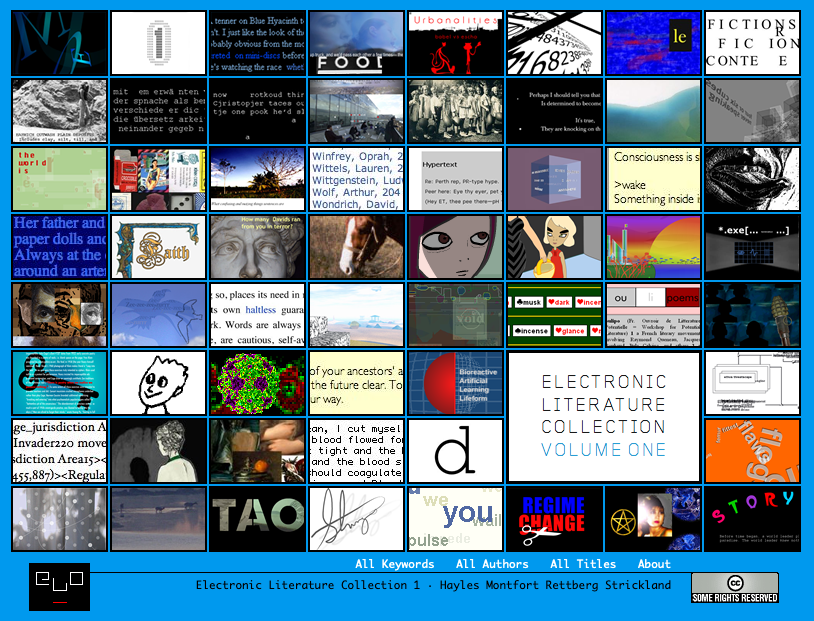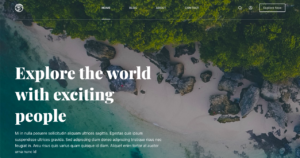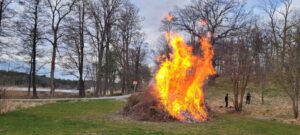Don’t worry, this isn’t going to be some kind of existential crisis post (that one’s coming up next), rather a brief heads-up for readers (like the ever-vigilant GMT) who may be interested in what I’ll be doing here in Karlskrona, Sweden over the next twelve months.
As alluded to in my recap on 2010, I’ve moved to Karlskrona to take up a post-doctoral position at Blekinge Tekniska Högskola (Blekinge Institute of Technology, BTH). Both Karlskrona and BTH are quite small – the former is home to roughly 60,000 people, while the latter probably has a couple of thousand students.
What drew me here? To be honest, it was the first job I found while doing a random search on the Internet for post-doctoral research, a search motivated by the fact that I’d just completed my PhD and could therefore start thinking about applying for different kinds of jobs. But that’s not the whole truth.
I was also very curious about ELMCIP, the project that my post-doc is only a very small part of. ELMCIP stands for Electronic Literature as a Model of Creativity and Innovation in Practice and is a 3-year collaborative research project running from 2010 to 2013.
Now perhaps you’re wondering what electronic literature is. You might even be thinking “Literature I get, sure, but electronic literature (or ‘e-lit’) —WTF?”.
One definition is provided by the Electronic Literature Organization (otherwise known, perhaps unfortunately, as ELO):
The term [electronic literature] refers to works with important literary aspects that take advantage of the capabilities and contexts provided by the stand-alone or networked computer.
This definition goes on to list some examples of electronic literature, including:
- Hypertext fiction and poetry, on and off the Web
- Kinetic poetry presented in Flash and using other platforms
- Computer art installations which ask viewers to read them or otherwise have literary aspects
- Conversational characters, also known as chatterbots
- Interactive fiction
- Novels that take the form of emails, SMS messages, or blogs
- Poems and stories that are generated by computers, either interactively or based on parameters given at the beginning
- Collaborative writing projects that allow readers to contribute to the text of a work
- Literary performances online that develop new ways of writing
The ELO website also features an online anthology of e-lit works, a still from which I’ve used as the image for this post, and which may give you a better idea of electronic literature as an emerging genre. For a much more intricate and in-depth explanation, check out this essay by N. Katherine Hayles.
So, we’ve got Karlskrona, BTH, ELMCIP and e-lit all sorted out. So far so good. But what exactly is my role in all of this? Well, as the post-doctoral researcher at BTH I’ll be assisting my colleagues Maria Engberg and Talan Memmott in conducting research on how electronic literature is taught in European schools and universities. I’ll also be assisting with the compilation of a DVD featuring electronic works by European e-literature artists.
My interest in and enthusiasm for both of these tasks stems, somewhat, from my own experience as a teacher of literature and as an editor of an electronic poetry journal. In my work as a tutor and lecturer I’ve attempted several times to introduce students to the glories of search poetry (which in other contexts might be called Flarf). In my role as editor of Cordite I also published a collection of search poetry which was a lot of fun.
As a teacher of creative writing and new media, however, my experiences have been somewhat mixed, from a pedagogical point of view at least. How does one capture the lessons learnt by trial and error in the classroom when experimenting with technologies? What issues does the use of electronic media raise when it comes to traditional pedagocical teaching methods such as close reading or textual analysis? What about collaboration in an online environment.
As you can probably tell, I’m really only in the very early stages of thinking about these things seriously. Indeed, this blog post is my first attempt to describe in words what for me has always been a fairly ephemeral thing, namely the creation of electronic works for distribution and perusal on electronic devices. In any case, I’m looking forward to learning a whole lot more about e-literature this year, and hope that some of what I learn will be crystallised into robust and useful research.
Now, about that post on my current existential crises …



